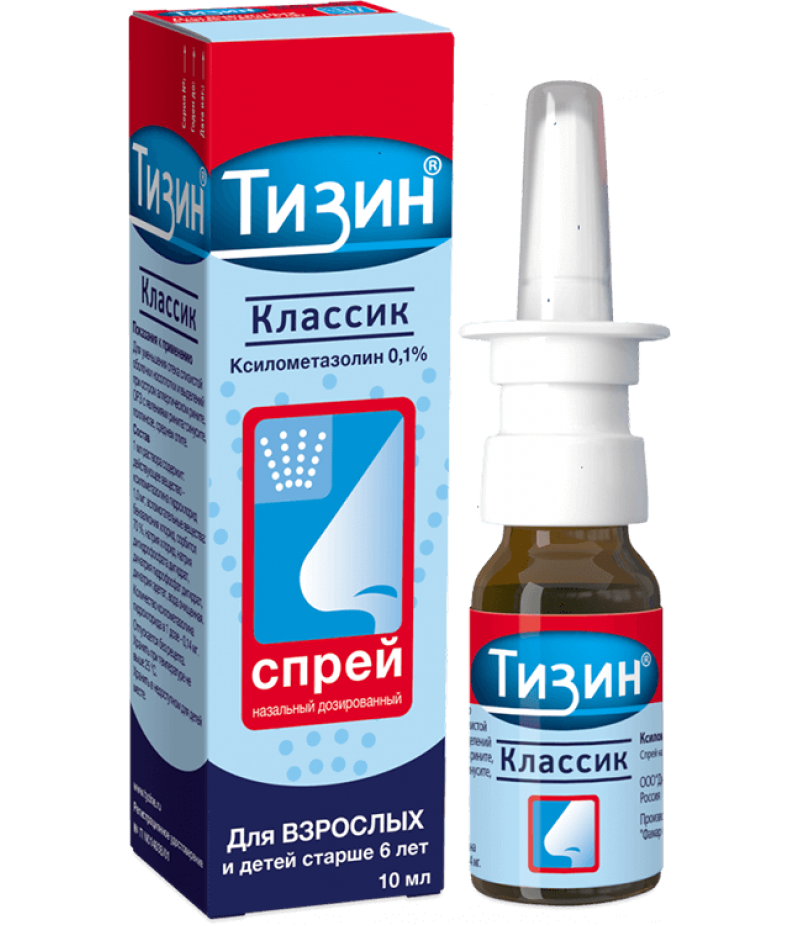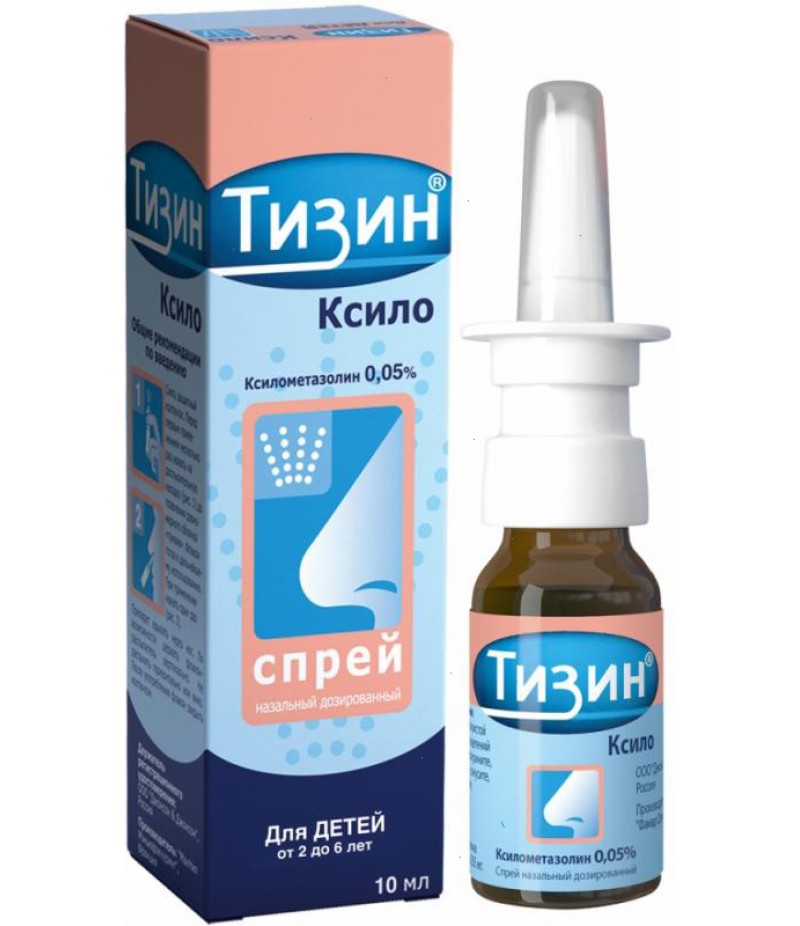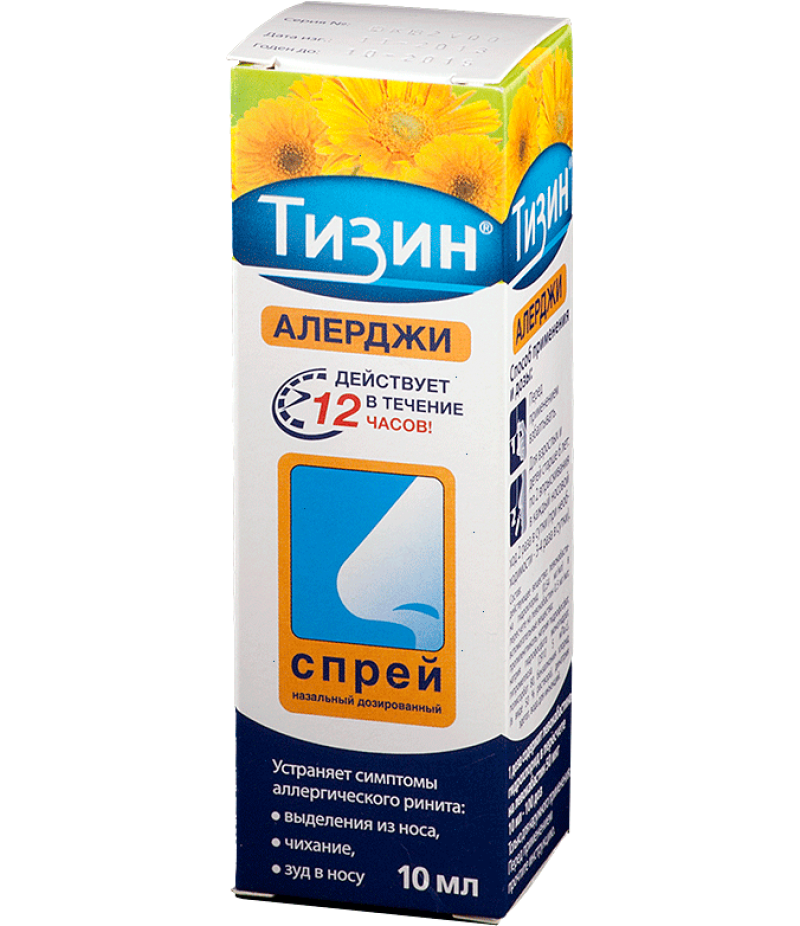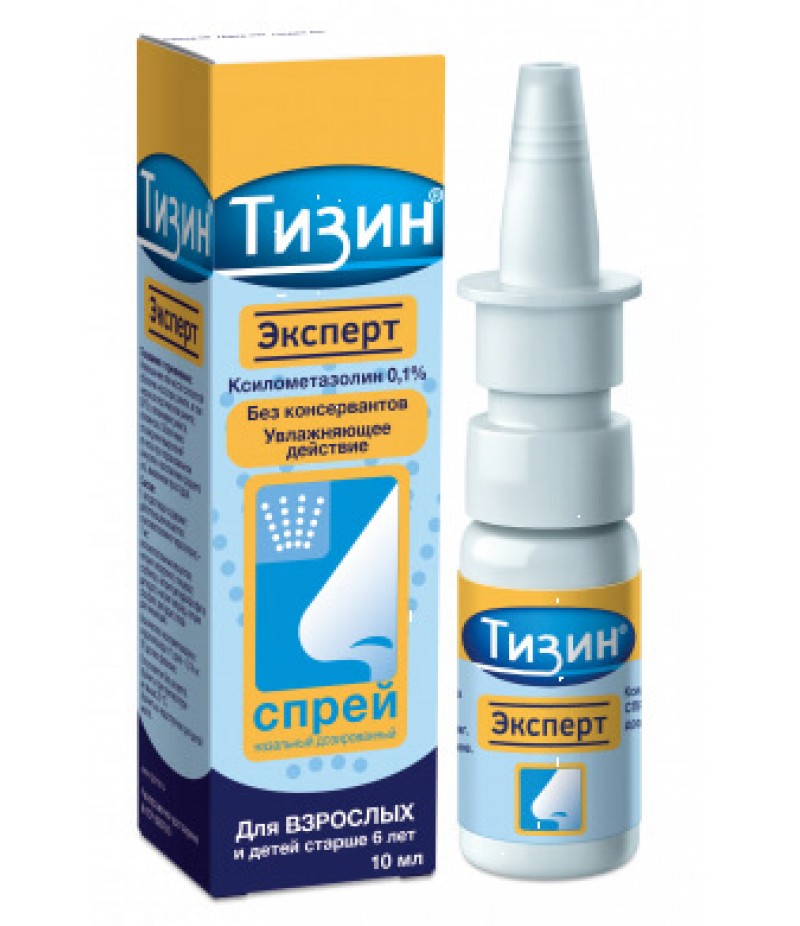Tyzine Classic spray 0.1% 10ml
- $6.15
- 3 or more $5.99
- Availability:In Stock
Instruction for TyzineReed more and buy Tyzine on this pageComposition of TyzineThe composition of drops in the nose Tyzine differs by the concentration of the active drug compound depending on the variety of the drug.In 1 ml. nas..
Tags: spray
Instruction for Tyzine
Reed more and buy Tyzine on this page
Composition of Tyzine
The composition of drops in the nose Tyzine differs by the concentration of the active drug compound depending on the variety of the drug.
In 1 ml. nasal drops (concentration 0.1%) contains 1 mg. tetrazoline hydrochloride, and in addition, auxiliary components such as perfume oil, benzalkonium chloride, benzyl alcohol, disodium edetate, hydrochloric acid, sodium citrate, sorbitol, polyoxyethylene glycerol trihydroxystearate 40, water, sorbitol and methylhydroxypropylcellulose.
In 1 ml. Child Tyzine (concentration 0.05%) contains also 1 mg. drug compound and similar to the above-described form of the drug auxiliary components.
Form of issue
Nasal drops are an opalescent colorless transparent liquid that is produced in specialized bottles-droppers, made of dark glass, with a nominal volume of 10 ml. One bottle of Tyzine contains only one bottle with nasal drops.
pharmachologic effect
Tysine belongs to a group of drugs that affect alpha-adrenoreceptors and have anti-edematous and vasoconstrictor abilities.
Pharmacodynamics and pharmacokinetics
With the use of Tyzine, droplets narrow in size small arterioles located in the nasal passages, while eliminating the swelling of the mucous tissues and reducing the secretion. As a rule, the effect of the use of the drug comes within one minute of its application and lasts a maximum of 8 hours. It is noteworthy that these nasal drops are almost not absorbed.
Indications for use
This drug is indicated for use with sinusitis, rhinitis, pharyngitis, as well as with hay fever. In addition, nasal drops of Tyzine are used as a preparatory agent for diagnostic or therapeutic manipulations to eliminate the edema of the mucous tissues of the nasal passages and the nasopharynx.
Contraindications Tyzine
Contraindications to the use of the drug are closed-angle glaucoma, dry rhinitis, as well as hypersensitivity. It is worth remembering that there are age limits for these nasal drops. For treatment of children under 2 years of age, do not use the drug, the concentration of the active compound in which reaches 0.05%. For patients who have not reached the age of 6, the "adult" form of Tyzine is contraindicated, i.e. drops of 0.1%.
With special care this drug should be used in the treatment of patients suffering from such diseases as: IHD, hypertension, aneurysm, arrhythmia, pheochromocytoma, diabetes, hyperthyroidism and some other cardiovascular disorders and metabolic disorders.
Side effects
As a result of non-compliance with the recommendations for the use of the drug, side effects such as burning, hyperemia, prolonged use of mucosal edema of the nasal passages, tremor, palpitation, sweating, headaches, weakness and blood pressure jumps can occur.
Instructions for use Tyzine (Method and dosage)
According to the instructions for Tyzine, drops in the nose are used intranasally, i.e. Bury in the nasal passages with slightly reclining the back of the head. Adult patients and children aged 6 years are recommended to instill in each nostril for 2 or 4 drops of the drug, a concentration of 0.1%.
Children's Tyzine, a concentration of 0.05% used in the treatment of children aged 2 to 6 years in a dosage equal to 2-3 drops. In pregnancy, Tyzine is used if the intended benefit is substantially greater than the harm. Nasal drops should be used no more than once every 4 hours.
As a rule, the drug has a long-term effect, so it is enough to use it infrequently. It should be remembered that the maximum duration of treatment with the drug should not exceed 5 days - for adults and 3 days - for children.
Although the use of drops before bedtime is considered an effective measure to eliminate nasal congestion for the whole night, the drug can trigger the onset of insomnia, as it affects the human nervous system.
Repeated treatment with Tyzine can be prescribed after a few days after the previous therapeutic treatment.
Overdose
With an overdose of Tyzine, symptoms such as cyanosis, dilated pupils, convulsions, nausea, fever, arrhythmia, hypertension, tachycardia, pulmonary edema, mental and respiratory distress, cardiac arrest appear.
Interaction
Tysine should not be used together with antidepressants of the tricyclic series, as well as with monoamine oxidase inhibitors, since this combination may have a vasoconstrictive effect on the human body, and, in addition, affect the level of blood pressure.
Terms of sale
You can buy Tyzine without a doctor's prescription.
Storage conditions
Tyzine should be stored out of the reach of children at a temperature not exceeding 25 ° C.
Shelf life - 5 years.
special instructions
Since this drug can cause the development of a visual impairment, during its use it is worth to refrain from activities that involve the need for concentration of attention and quick reaction, for example, driving or working with potentially dangerous to life and health aggregates and mechanisms.
Tyzine during pregnancy and lactation
Many women are wondering whether Tyzine can be used as nasal drops during pregnancy and breastfeeding. According to the instruction, the drug can be used for pregnant and lactating mothers only if the intended benefit will be substantially higher than the possible harm.
Many believe that children's Tyzine can be used without fear during pregnancy and lactation, but this is not the case, since both forms of the drug may manifest vasoconstrictor side effects that are life-threatening for both mother and child.
Tyzine for children
For children, these nasal drops are not contraindicated provided all the recommendations are followed. Reviews of children's nasal drops are mostly positive. The average price of this type of medicinal product, as a rule, does not exceed 110 rubles.
Reviews of Tyzine
Patients who use this drug leave, as a rule, positive feedback about Tyzine, both as a child and an adult variety of nasal drops. Many parents note the effectiveness of the drug for children.




